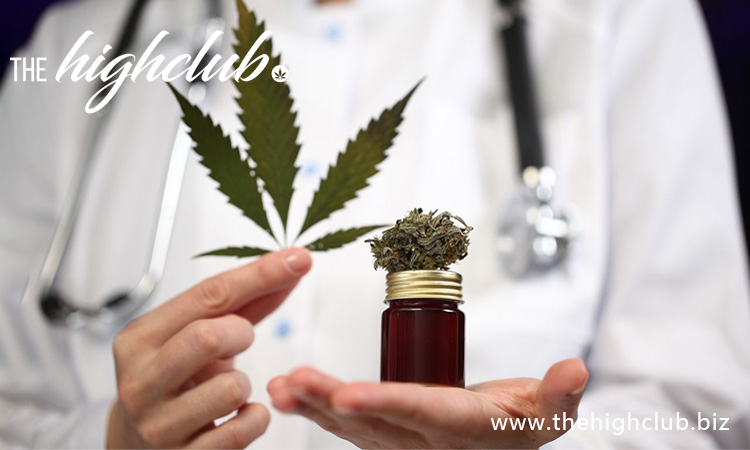Industry News
Medical Marijuana | Canada
Medical Marijuana
Among doctors, scientists, researchers, policymakers, and the general public, nothing inspires more intense emotions than medical marijuana. is it safe? Should it be legal? Decriminalize? Has its effectiveness been proven? Under what conditions is it useful? Addicted? How do we keep it out of the hands of teenagers? Is it really the “miracle drug” people claim? Is medical marijuana just a tactic for legalizing marijuana in general?

These are just some of the excellent questions around this topic, which I will deliberately sidestep so we can focus on two specific areas: Why do patients find it useful, and how do they discuss it with their doctor?
On October 17, the federal government of Canada officially approved the legalization of recreational marijuana. Canada has since become the second country after Uruguay to legalize recreational marijuana. This means that Canadian legislation allows for a nationwide marijuana market, a step further than the decriminalization of recreational marijuana in the Netherlands and Portugal. In the neighboring United States, recreational marijuana has been legalized in some states, including Washington, California, and others. The Obama administration hasn’t even made prosecuting medical marijuana a secondary priority. President Donald Trump has pledged not to interfere with those using medical marijuana, even though his administration is currently threatening to reverse the policy. About 85 percent of Americans support legalizing medical marijuana, and it is estimated that at least a few million Americans currently use it.
Uses of medical marijuana
In Canada, the most common use of medical marijuana is pain management. While marijuana isn’t strong enough for severe pain (for example, post-operative pain or a broken bone), it’s very effective for the chronic pain that plagues millions of Americans, especially as they age. Part of its appeal is that it is clearly safer than opiates (overdose is unlikely and is much less addictive) and that it can replace NSAIDs like Advil or Aleve if people can’t take them due to physical problems. Inflammation medicine. Kidney or ulcer or gastroesophageal reflux disease.
In particular, marijuana appears to relieve pain in multiple sclerosis and nerve pain in general. This is an area where few other options exist, and those that exist, such as Neurontin, Lyrica or opioids, are highly sedative. Patients claim that marijuana allows them to resume their previous activities without feeling completely disengaged and disengaged.
Cannabis is said to be a fantastic muscle relaxant and people swear it can reduce the tremors of Parkinson’s disease. I’ve also heard of it being used very successfully for fibromyalgia, endometriosis, interstitial cystitis and most other conditions where the ultimate common pathway is chronic pain.
Marijuana is also used to control nausea and weight loss, and can be used to treat glaucoma. A very promising area of research is its use in post-traumatic stress disorder in veterans returning from war zones. Many veterans and their therapists report a big improvement, and are calling for more research and for an easing of government restrictions on their research. Medical marijuana has also been reported to help patients with HIV-related pain and wasting syndrome, as well as irritable bowel syndrome and Crohn’s disease.
This is not an inclusive list, but a brief survey of the types of conditions for which medical marijuana can provide relief. As with all remedies, claims of effectiveness should be rigorously evaluated and treated with caution.
Talk to your doctor
Many patients find themselves in situations where they want to learn more about medical marijuana, but are embarrassed to bring this up to their doctor. That’s partly because the entire medical community has been dismissive of the issue. Doctors are now playing catch-up and trying to stay ahead of their patients’ knowledge on this issue. Other patients are already using medical marijuana but don’t know how to tell their doctor for fear of being blamed or criticized.
My advice to patients is to be completely open and honest with your physicians and have high expectations of them. Tell them you think this is part of your care and that you want them to be educated about it and at least be able to point you in the direction of the information you need.
My advice to physicians is that whether you are pro, neutral or against medical marijuana, patients are accepting it, and while we don’t have rigorous studies and a “gold standard” proving the benefits and risks of medical marijuana, we need to understand it, keep Have an open mind and most importantly, don’t judge. Otherwise, our patients will seek out other less reliable sources of information; they will continue to use it, just not tell us, and the trust and strength in our doctor-patient relationship will be greatly diminished. I often hear other doctors complain that there isn’t enough evidence to recommend medical marijuana, but there’s even less scientific evidence to bury our heads in the sand

